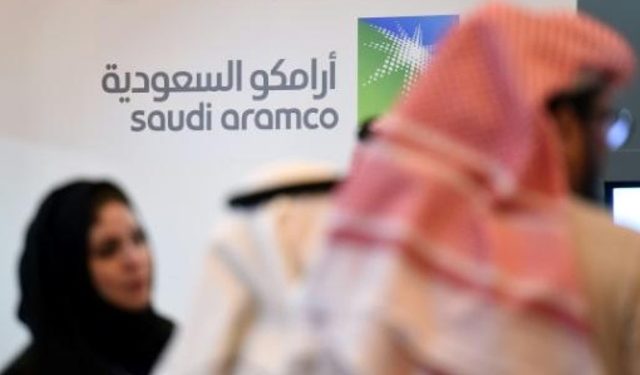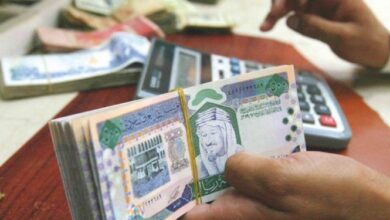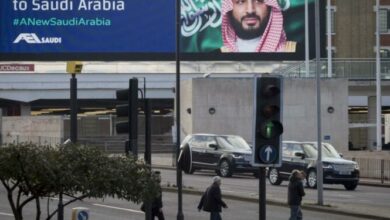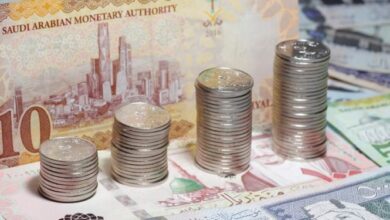British report: Aramco IPO funds are humble and limited

A British report confirmed that what the Saudi regime will gain from the subscription of state oil company Aramco is modest and limited and may not exceed the coverage of the Kingdom’s fiscal deficit for six months.
Saudi Arabia’s modest sums from Aramco’s “privatization” are that oil exporters are becoming lost, as the world changes its energy policies, according to the report in The Telegraph.
The report said $25 billion would not have any beneficial effect on Mohammed bin Salman’s 2030 vision, calling it a theatrical plan to break the oil addiction and diversify everything from car factories to weapons production.
He added that the crown prince would not go too far to launch the Neum project, his half-trillion-dollar white giant on the Red Sea.
The writer said the Saudi regime resorted to scams to sell 1.5% of Aramco’s shares on the local Tadawul Exchange, as it did at the Ritz-Carlton princes, doubling the leverage of banks to enable Saudi retail customers to buy shares.
Other foreigners will not touch Aramco even after it has been cut from $2 trillion to $1.6 trillion or $1.7 trillion, because theoretical oil reserves are not worth much these days because of the climate reaction, and large wealth funds have avoided lingering assets and litigation risks.
A country like Saudi Arabia should cover the world’s fourth-largest military budget and the war in Yemen, as well as Egypt’s financing and paying for the welfare system that is its political cover, and would need every dollar of current revenue, the report warned.
So buying shares in the state monopoly, which is at the same time the financial lifeblood of the regime, is a risk of destiny. Will the crown prince resist withdrawing Aramco’s revenues through taxes so that nothing is left to profits?
Aramco’s volatility, according to the report, is an important moment for OPEC, because it may put an end to the Organization earlier than it feared, especially as the Organization of the Petroleum Exporting Countries built the spending structure on mere assumptions, such as the price of oil at $100 a barrel, and the continued prosperity of China, which changed after five.
The winter will be bleak for OPEC and Russia, according to the report, because they again face the risk of falling prices unless they agree to further cut production, although global oil demand is expected to grow by 1.2 million barrels next year, due to supply from Canada, Brazil, Norway, Guyana and the United States. United will rise by 2.3 million barrels per day.
The risk for OPEC and Russia is that the “lower for longer” price may extend into the middle of the next decade, when electric cars will be at the same price as gasoline and diesel engines, with much lower lifetime costs.
The International Energy Agency’s energy forecast last week came as a scary reading for OPEC ministers, estimating that US production will continue to rise to an unexpected level of 20.9 million bpd by 2025.
The International Energy Agency (IEA), which is not a green friend, said oil consumption growth would “slow to end” after 2025. “Countries whose economies are exclusively dependent on oil and gas face serious challenges,” she said.
The report concluded that this is what OPEC faces under the IAEA’s “stated policy scenario,” which allows carbon dioxide emissions to continue to rise by more than 100 million tonnes per year, risking planet safety. On oil to fifty million barrels a day by the middle of the century?
He believes that OPEC is still living a surreal denial, where it believes that its global view this month that oil and gas will continue to be within 53% of the global energy mix in 20 years, as is the case today.
This is a disregard for the IPCC’s scientific warning and a certain global carbon tax, and it also ignored the possibility of a total ban on the sale of fossil fuel-based vehicles to Europe, China, India and North America within a decade.
The report concluded that the oil industry in the world is living a political time interrupted and financial deterioration, pointing out that the Saudi regime had to – instead of its efforts to sabotage the global climate summits decades ago – to listen to what is said.
He concluded that if Saudi Aramco had been on sale before the world woke up to the climate problem at the time of the oil boom and greedy Asian demand, the Saudis could have filled enough to cover the crown prince’s dreams.





